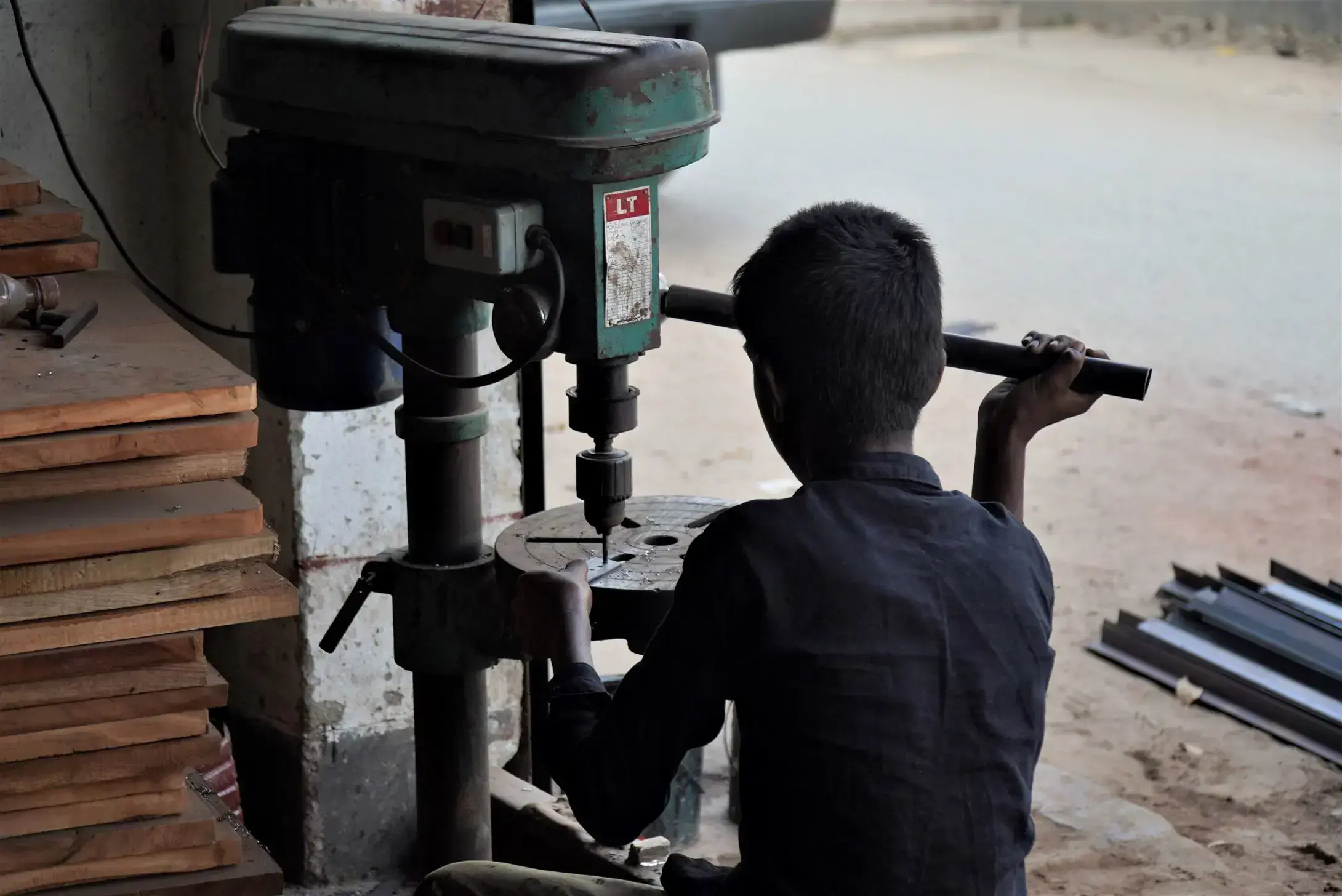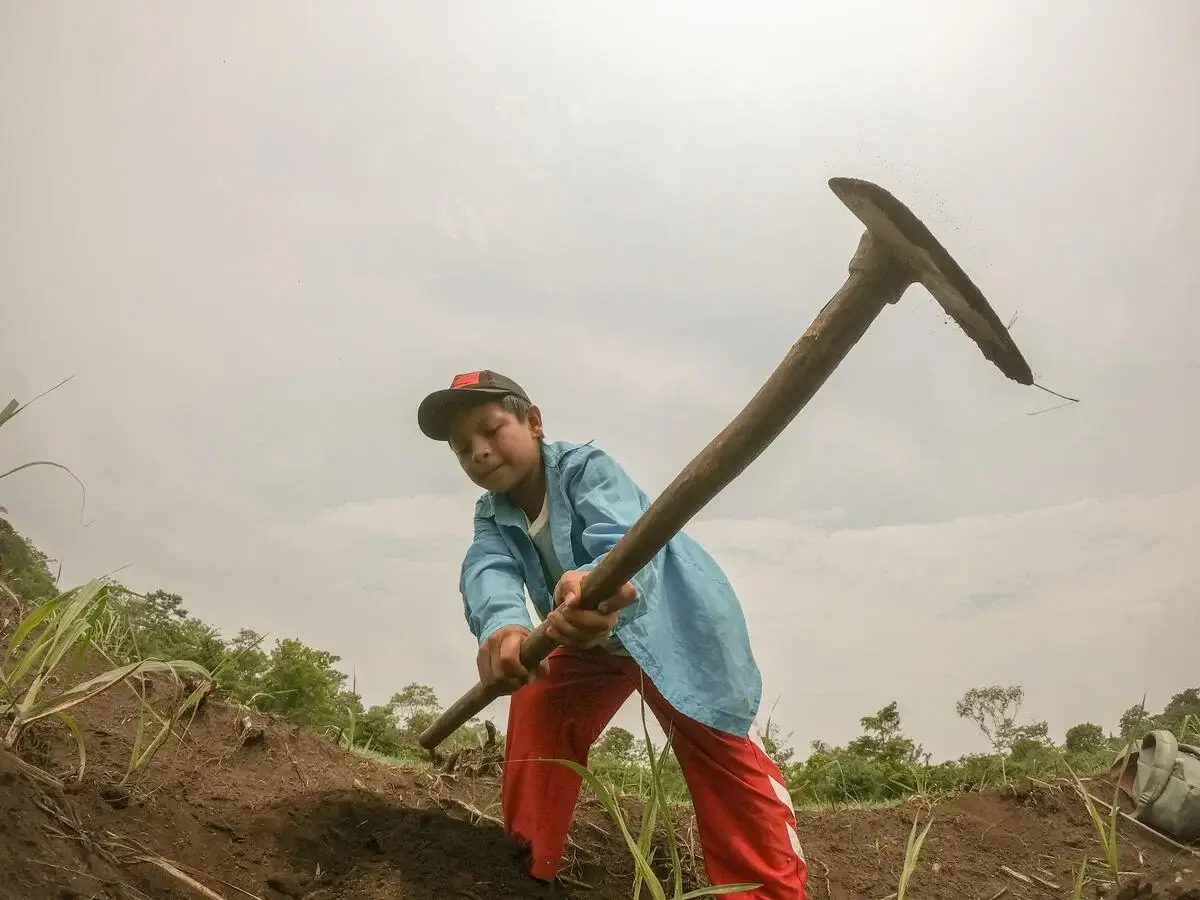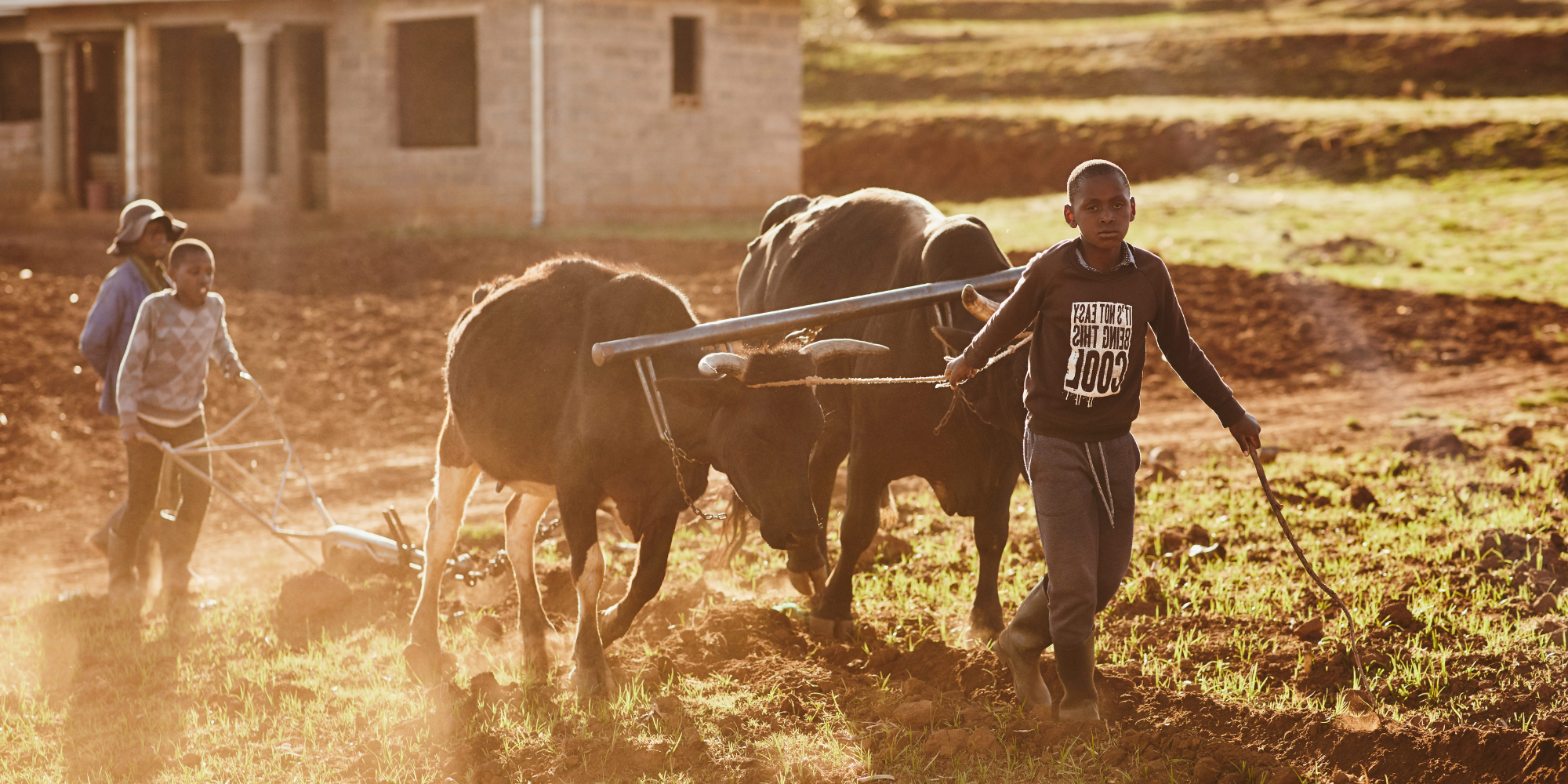Marking World Day Against Child Labour – June 12
Every year on June 12, the world comes together to recognise World Day Against Child Labour—a day to raise awareness, reflect on progress, and recommit to ending child labour in all its forms. It’s a reminder that no child should be denied their right to a safe, happy, and educated childhood.
In Ireland, we get to experience childhood to the fullest. Our children go to school, play sports, and dream big. But for millions of children around the world, childhood looks very different. They’re not in classrooms—they’re in fields, factories, and workshops. And while it might feel like a world away, child labour is something that affects us here in Ireland more than we might realise.

What Exactly Is Child Labour?
Child labour isn’t about helping out on the family farm or doing chores at home. It’s work—often dangerous, exploitative, and unpaid—that robs children of their education, safety, and future. According to the International Labour Organization, 1 in 10 children globally are involved in child labour.
Imagine if every child could finish secondary school. Experts estimate that 420 million people could be lifted out of poverty. That’s the scale we’re talking about.
Why Is It So Harmful?
Of the 160 million children currently in child labour, 79 million are doing hazardous work. This includes:
Handling toxic chemicals in agriculture or manufacturing
Carrying heavy loads or using dangerous tools
Working in extreme heat or cold
Being trafficked or forced into sex work
These are not jobs for children. They’re dangerous, exploitative, and often leave lasting physical and emotional scars.
But What Does That Have to Do With Ireland?
A lot more than you might think.
Ireland imports goods from all over the world—clothing, electronics, coffee, chocolate. Many of these supply chains have been linked to child labour. Even some of the world’s biggest brands have faced scandals over it. So, when we shop, we may unknowingly be supporting systems that exploit children.
As Irish consumers, we have power. We can ask questions, support ethical brands, and push for transparency in supply chains.
The Long-Term Impact
Child labour doesn’t just harm children in the moment—it limits their entire future. Kids who work often miss out on school, which traps them in poverty. And if we counted unpaid domestic work—like girls staying home to care for siblings—the numbers would be even higher.
But education is transformative. If all girls completed secondary school by 2030, developing countries could see a 10% increase in GDP by 2040. That’s not just good for them—it’s good for the global economy, including Ireland’s.
In Ireland, we know school is about more than just books. It’s where children make friends, learn life skills, and grow into confident adults. The longer a child stays in school, the better their health, income, and community outcomes.

But Don’t Families Need the Income?
Yes—and that’s the heartbreaking part. Poverty forces families to send their children to work. But child labour also keeps families poor by limiting future opportunities. It’s a vicious cycle—but one that can be broken.
What Can We Do From Ireland?
There’s hope. Around the world, donations from supporters like you are helping families build better futures. Your donations allow us to:
Help parents learn job skills and start businesses
Raise awareness about children’s rights
Advocate for stronger child protection laws
Support children to stay in school
Donate today to join us in the fight against child labour.
